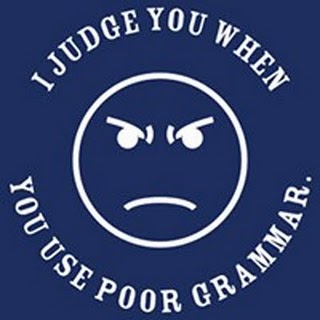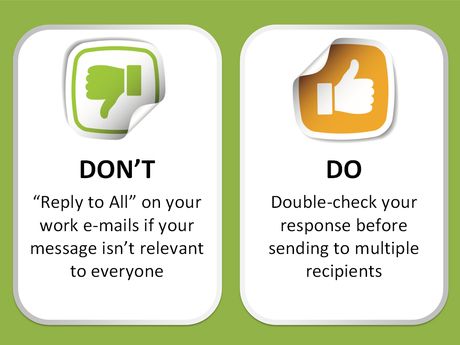12 Ways Your Resume Can Say ‘I’m Unprofessional’
12 Ways Your Resume Can Say ‘I’m Unprofessional’
Everyone wants to find ways to stand out during the job application process, but you don’t want to highlight these ways your resume can say ‘I’m unprofessional’ or have your application stand out for the wrong reasons.
Lack of professionalism, careless emails, or just general lapses in judgment are the quickest way to get your resume dumped in the trash, no matter how good your qualifications are.
Here are 12 ways your resume can say ‘I’m unprofessional’. These are the types of mistakes that people make when writing a resume and/or filling out job applications.
1. Sending informal emails with poor grammar, lack of capitalization or punctuation, and lack of proper greetings and closings.
Are you writing to your potential employer on facebook? Or filling out your application via text message? If not, then your potential employer probably won’t appreciate receiving an email that starts with “Hey.” Even with highly qualified applicants, correspondence matters. The content of your email is the employer’s first impression of the person behind your resume. Always err on the side of professionalism.
You’re thinking: My resume and qualifications are great, and this is how everyone writes these days.
We’re thinking: This person either can’t construct a grammatically correct sentence or is just too lazy. Either way, how is someone who is that unprofessional before they’ve even interviewed for the job going to behave once they’re on the job?
2. Sending an over-done graphic-design resume with an artsy, colorful background. Or, worse, sending a video resume or a brochure about yourself.
Congratulations, you can use Photoshop. Unless you’re applying for a position in graphic design, it’s not exactly relevant. Resumes have a simple, straightforward and pretty standard format for a reason. Your potential employer probably has better things to do than scroll through pages of brightly colored graphics just to figure out if you’re qualified for the position. If you really feel the need to jazz it up a bit, stick with a simple, low-key design that doesn’t distract from the text. Highlighting text is the norm these days, but a colorful background image or too many photos is not.
You’re thinking: I’m awesome. This makes my resume really “pop” and stand out from the crowd. It’s sure to get me noticed for creativity and innovation.
We’re thinking: This makes my eyes hurt and it’s too much trouble to go through.
NOTE: Since this article was published, we’ve received plenty of questions about new and eye-catching formatting for CVs. There is nothing wrong with using an eye-catching CV, but most schools and placement agencies like Reach To Teach request plain black and white CVs that can be easily parsed into applicant tracking systems. Feel free to have a read through the comment section to see what we mean. We see a great number of teachers who submit plain CVs online to start their application process, but when they are approaching schools directly for the first time, they’ll submit an eye-catching CV to ensure it is seen. We also want to note that teachers often mail a more colorful and eye-catching CV when they mail their document package to another country to begin the visa process.
3. Listing completely irrelevant skills, hobbies, and interests on your resume are easy ways your resume can say ‘I’m unprofessional’
While there is nothing wrong with having a “Hobbies and Interests” section on your resume, ask yourself if what you’re listing there is relevant to the job and makes you stand out. For example, saying “reading” is your hobby isn’t likely to pique an employer’s interest. Detailing your skills in ancient weapons techniques and firearms also isn’t likely to get you very far if you’re applying for a job teaching kids.
Make your hobbies and interests specific to the job you are applying for and try to communicate, even briefly, how they can be relevant to the job you are applying for.
You’re thinking: Listing my interest in puzzles and board games shows that I am a well-rounded person with varied interests and abilities.
We’re thinking: How does this person think that this is in any way relevant to this position? Do they even understand the position they are applying for?
4. Sending documents and information that isn’t required for the application process.
Unless they specifically ask, most employers neither need nor want your birth certificate, your religious affiliation, or information about what you had for breakfast. Believe it or not, employers actually think about and consider exactly what information they need, and then ask for exactly that. Following the application instructions will impress potential employers a lot more than a scan of your official black belt certification.
You’re thinking: I’m proving that I am proactive, fully prepared, and thorough.
We’re thinking: All we asked for is a cover letter, resume, and photo. This person can’t follow simple, straightforward directions.
5. Contacting every single person at the company that you can possibly find an email address for.
Spam isn’t good on sandwiches, and it’s not any better in a job application process. You might not think of it as “spamming” the employer, but contacting multiple people at an organization asking the same questions is sure to be interpreted that way. Furthermore, it is a surefire way to annoy everyone in that office. If a position lists a particular person to contact, then contact only that person.
You’re thinking: This shows that I am persistent and serious about getting this position.
We’re thinking: Why do we have 15 emails from this person? Can’t they make up their mind on a department/position and stick with it?
6. Demanding a higher salary, increased benefits, or specific job preferences before you’ve even completed an interview—or even completed your application!
Often, the compensation that you receive for a job is negotiable. Sometimes benefits are fixed. Either way, making specific demands, or stipulating that you will only apply for the position if you are granted certain preferences makes a pretty bad first impression.
If you don’t think the position as described is a good fit, don’t apply. Wait to discuss how you deserve double the salary they are offering once you’ve completed your first month or two at work, wowing everyone with your brilliance.
You’re thinking: I’m more than qualified for this position, and I deserve better benefits than those listed for this position.
We’re thinking: We haven’t even interviewed this person yet, and they’re making demands of us? How difficult is this person going to be to deal with once we’ve actually hired him?
7. Putting inspirational quotes on your resume or in your emails
Showing some personality on your resume is cool. Quoting The Big Lebowski, not so much. Your uniqueness should come out in your accomplishments, hobbies, and in your cover letter. We’ve had people quote movies in the text of their emails, put inspirational quotes in the header of their resumes, and fill their email signatures up with their personal insights on life. Unless you are applying to be a motivational coach, keep your inspiration for yourself.
You’re thinking: I’m showing my insight, personality, and worldliness by quoting Nietzsche.
We’re thinking: What is this person trying to prove? I am inspired to hit the delete key…
8. Writing a one-sentence cover letter
A cover letter is a standard part of any job application process. It is your chance to introduce yourself and explain why you are a good fit to a potential employer. It is also often the first thing that an employer looks at, before they even see your resume. The point of a cover letter is to show you’ve done your research, understand the position you are applying for. It’s a chance to prove you are serious about the position. Take the opportunity to sell yourself, tell your story, demonstrate your qualifications, and link it all with the opportunity you are applying for.
You’re thinking: My resume clearly shows I’m qualified for this position. The cover letter is just a formality, so I won’t worry too much about it.
We’re thinking: If this person can’t take the time to write a couple of paragraphs explaining why they want to work here, they must not be that serious about getting the job.
9. Sending an inappropriate or unprofessional photos
If a photo isn’t specifically asked for in the job application process, don’t send one. If it is asked for, make sure that it portrays you as professional and personable. Send a photo where you are dressed nicely and smiling. Use your judgment. If the company you are applying to is a smaller, more casual company, then a more casual picture is appropriate (not too casual, though!). If it is a large corporation, your photo should look as professional as possible.
Here are a few examples of things your photo should never include: Animals, costumes, alcohol, any form of swimwear, your significant other, a gaping hole where your ex-significant other was clearly torn out of the picture! In short, just because it is appropriate for facebook does not mean it is appropriate for a job application.
You’re thinking: I look awesome in this photo!
We’re thinking: If this is the sort of photo they send with a job application, I can’t even imagine what sort of stuff they have posted elsewhere!
10. Sending a blank email with documents attached
Chances are that whoever you are emailing gets quite a few emails every day. Typing a simple greeting, explanation of who you are and what you are sending, and a formal closing saves that person from having to hunt through past emails and documents just to figure out who you are.
You’re thinking: Attach, send. Done. Easy.
We’re thinking: Who are you? Why are you sending me this stuff?
11. Using a cute email address for correspondence
You might think you’re being unique by having an email address that stands out, but make sure that it’s an appropriate email address. Email addresses like cutiepie@ and ladiesman@ will do everything but impress a potential employer. An email address that makes a potential employer fear a future sexual harassment charge against you is not likely to land you an offer.
You’re thinking: This is a cute email address that everyone is sure to remember.
We’re thinking: We’re not going to tell you what an employer might think. Trust us, it’s not flattering.
12. Sending your resume out to numerous employers in the same email
Flat out, this is not cool. This is the quickest surefire way of having someone delete your email as soon as they have received it. Employers likely know you are applying with several companies, but if you are trying to save time by writing one email to five employers about five different jobs and can’t take the time to actively inquire about one position, it’s highly unlikely you will get an answer.
You’re thinking: I’m being productive.
We’re thinking: This person isn’t serious. They’re just fishing for information. I’m not going to compete with all of these other companies for the attention of someone who can’t be bothered to apply for a position directly with us. Next, please.
Avoiding these mistakes is as easy as stepping back for a minute, proofreading, and engaging your common sense. Otherwise, you might give your potential employer a good chuckle when they see the funny face you’re making while you hug your favorite puppy, but that’s not likely to get you an interview, let alone a job offer.
Don’t forget to Pin It so you can refer back to our article!







9 Responses
Mrs/Miss Stephanie, Thank you for your proffessional advise on cover letter,C.V and resume handling.Such information is essential not only for fresh graduates but for all aiming at winning employment opportunities.
Great read…
Hello thanks for the great advice. I am wondering, my resume is straightforward as advised, but I did do a video interview as I’ve heard it helps in Korea, and am including a link to it in my email to my recruiter. Is this advisable or unprofessional??
Hi Stephanie,
Sometimes private schools will ask you to do a video interview, but it isn’t necessary for the public schools in South Korea.
[…] Don’t forget to read our article on 12 Ways Your Resume Says “I’m Unprofessional!”. […]
I somehow do not know what to think about #2.
The reason behind people making colourful CVs is actually not the fact they are thinking they are awesome.
It is because they want to explain better who they really are (I would say though I mean now creative professions like marketing, graphic design or similar).
Another point that I would like to clarify the following: “Besides, this makes my eyes hurt and it’s too much trouble to go through”.
In case if the CV is done in a really complex geometric way, I can agree. On the other hand, is it actually worthwhile working for a company where recruiting personnel is so uncurious and not-out-of-the-box thinking to be too lazy to go through some not very standard CV?
I would not work there… as it would not benefit my self-developement too much.
Maybe the question is the degree of creativity you can use. Also, artsy can be pretty minimalistic and clear.
Why I am writing this? I was considering trying to make some unusual CV for the first time in my life. Also because I would not want to work in a place that has too many unnecessary restrictions for creativity.
Your article really made me think twice) On the one hand, thank you! On the other I am still full of doubts.
Hi Kate. Thanks so much for your comment. I personally like colorful CVs and I like the new styles of CVs that are coming out. Unfortunately, applicant tracking systems that recruiting organizations use are still behind the times with CVs that are formatted differently. That’s why most HR companies ask for plain CVs with information listed out correctly. Their systems are set up to scan and screen important information from CVs and allow us to properly vet applicants for the interview stage.
That said, I would certainly use a nicely designed CV for other positions. For example, if you are interested in getting into marketing, graphic design or photography, you wouldn’t use a standard CV template. You’d go with something that attests to your creative abilities!
Are you interested in teaching abroad?
I find this interesting. Some of the things that are listed to not do I’ve been told by a former HR director and a career counselor to do. Each told me they receive so many resumes that they all begin to look the same. Maybe if all this was done on one resume, then yes it would be an over abundance of “uniqueness”.
Hi Heather,
It depends on what you’re doing and what kind of advice you’re looking for. ESL CVs are typically set up differently from other positions because you don’t get the chance to interview for teaching abroad positions in person. Thus you may be asked to include additional information on an ESL CV that isn’t required for a job you can interview for at home in person. You mentioned that your former HR director adn career counselor have told you that all CVs begin to look the same after a while. That’s true. That’s why it’s important to know how to highlight the relevant sections that you want a school or potential employer to see right away. You’d want to be unique if you’re applying for a position in graphic design, for example, but when you’re tailoring your CV for ESL, it’s a different story.